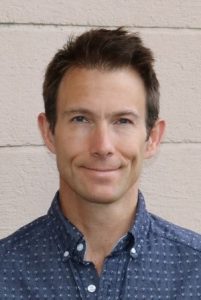Six Faculty Join the Department of Plant Sciences at UC Davis
Six Faculty Join the Department of Plant Sciences at UC Davis – Gail Taylor, Brian Bailey, Barbara Blanco-Ulate, Pat Brown, Tom Buckley, Mohsen Mesgaran
As the Department of Plant Sciences at UC Davis finishes the academic year (2017–18) and embarks on a new year, it’s time to meet six new faculty who joined the department during the last two years. These faculty, covering broad discipline areas, have bolstered the breadth and strength of the renowned department. In the next years, the department will add seven additional new faculty. All of these positions are a great asset and are focused on addressing the vision for Plant Sciences in the future.
The department is committed to undertaking cutting-edge plant sciences research, scholarship, teaching, and training that deliver solutions. This could be for the future supply of sustainable, resilient and nutritious food, underpinned by a strong plant breeding program, or for the improvement of semi-natural grassland and forest ecosystems.
Excellent research coupled to wide stakeholder and end-user engagement is where the department wishes to create stronger impact. The department’s chair, Professor Gail Taylor, whose expertise is in the area of plant sciences from molecule to ecosystem, is one of the new faculty.
“These new positions will allow us to continue to be the best in the world for delivering plant sciences that matter,” said Taylor. “The department has a phenomenal history — responsible for much of the plant breeding and selection that underpins major crops such as strawberry, but also in working closely with our industrial partners to develop new and innovative solutions such as partnerships with the major tree nut industries, alongside our stewardship to develop sustainable landscapes.
“Upcoming positions will include new innovative areas such as understanding the genomics of plant adaptation to the changing climate and a position focused on food systems in the urban environment. But we will also strengthen crop sciences — for future nutrient densification, as well as understanding the positive role of crops inn mitigating the impacts of climate change.”
The six new faculty:

Gail Taylor – Professor and Department Chair
Gail Taylor aims to understand the functioning of plants in relation to environment, particularly the changes in environment predicted for future decades. Her research group works on trees, mostly the model tree genus, Populus(poplar), and on leafy salad crops, particularly lettuce and watercress, but also on some native herbs and plant communities.
Her research focuses on delivering improved plants for multiple purposes, including trees for bioenergy. Fast-growing trees and managed forests will contribute to the emerging bioeconomy for fuel and other high-value products. Her lab uses the latest genomic technologies to understand how trees tolerate drought and identify desirable characteristic and genes for future breeding. She also works on leafy salad crops, particularly lettuce and watercress, and she works with industry to develop agritech solutions to minimize resource use in these crops now and into the future.
Taylor received B.Sc. and Ph.D. degrees in Biological Sciences from Lancaster University, UK, and joined the Department of Plant Sciences in 2017.
Gail Taylor, Professor and Department Chair
Department of Plant Sciences
Section: Agricultural Plant Biology
1210A Plant and Environmental Sciences
Email

Brian Bailey – Assistant Professor
Brian Bailey is developing the next generation of plant and crop computer simulation models, which provide a realistic virtual environment in which to study plants and ecosystems.
His research is interdisciplinary, combining expertise in engineering, computer science, atmospheric science, and biology to study plant systems. His lab’s focus is on developing high-resolution, 3D models and measurement techniques that can explicitly represent plant-environment interactions at scales ranging from leaves to canopies. Work to date has primarily focused on developing models for woody perennial crops, particularly almond and grapevine.
Bailey received his degrees — B.S., M.S., and Ph.D. in Mechanical Engineering— at the University of Utah. He joined the UC Davis faculty in November 2016.
Brian Bailey, Assistant Professor
Department of Plant Sciences
Section: Crop and Ecosystem Sciences
2021 Wickson Hall
Email
Lab

Barbara Blanco-Ulate – Assistant Professor
Barbara Blanco-Ulate’s research studies fruit biology to develop new strategies for improving quality, nutrition, and shelf-life of postharvest commodities.
Her research program includes several projects ranging from fruit genomics and biochemistry to applied postharvest research. Research interests include the control of fruit ripening, improvement of fruit quality, and fruit-pathogen interactions. Her lab integrates systems biology approaches with biochemical and physiological analyses to study fruit development and quality traits, and to establish a novel framework for the early detection and efficient management of fruit diseases.
Blanco-Ulate received a B.Sc. in Biotechnology Engineering at the Instituto Tecnologico de Costa Rica, and a Ph.D. in Plant Biology at the University of California, Davis.
Barbara Blanco-Ulate, Assistant Professor
Department of Plant Sciences
Section: Agricultural Plant Biology
102 Mann Lab
Email
Lab

Patrick J. Brown – Associate Professor
Pat Brown is a nut crop breeder who integrates genomic and imaging data into applied breeding programs for California tree nuts. He is currently working with the Walnut Improvement program.
His primary research focus is the integration of genomic and high-throughput phenotyping data into applied plant breeding programs, with a focus on nut crops (walnut and pistachio). Key traits of interest for both these crops include phenology (leafing, flowering, and harvest dates), nut size and quality (pellicle color, seal strength, and ease of removal for walnut; percentage of blanks and splits for pistachio), and adaptation to climate change (chilling requirement, salinity tolerance). Some of my other interests include scion-rootstock interactions, preservation and use of Juglans and Pistacia germplasm, and the evolutionary genetics of plant mating systems (heterodichogamy in walnut, dioecy in pistachio).
Brown received his B.S. degree in Biology at Reed College, then a Ph.D. in Plant Biology at Cornell University.
Patrick J. Brown, Associate Professor
Department of Plant Sciences
Section: Agricultural Plant Biology
2023 Wickson Hall
Email

Thomas Buckley – Assistant Professor
Tom Buckley studies the biology of plant response to environmental stressors such as drought and heat to better manage crops in a changing climate.
His research addresses the physiology, ecology and biophysics of plant responses and adaptations to environmental stress and change. He also studies plant water relations, water transport, stomatal biology, gas exchange (transpiration, photosynthesis, respiration), photosynthetic resource economics, process-based and optimization-based modeling of plant function.
He is currently working on improving carbon capture in wheat canopies, and developing improved methods for measuring sap flow in woody plants.
Buckley received a B.S. in Biology from James Madison University, and a Ph.D. in Biology from Utah State University.
Thomas Buckley, Assistant Professor
Department of Plant Sciences
Section: Crop and Ecosystem Sciences
3025 Wickson Hall
Email
Lab

Mohsen Mesgaran – Assistant Professor
Mohsen Mesgaran studies the eco-evolutionary processes underpinning the spread and escalation of weedy and invasive plants in both agricultural and natural systems.
In research on weeds, he is working to establish links between ecological patterns and physiological processes through advanced modeling approaches. His research has direct outcomes for ecological management of weeds and thus can help reduce the use of chemicals in weed management.
Current focuses in his lab include reproduction biology of weeds and invasive plants, spatiotemporal dynamics of weeds, seed germination and emergence ecology, big data modeling and precision agriculture, and interaction between weedy plants and their pollinators.
Mohsen Mesgaran received Ph.D. degrees in Weed Science/Ecology from the University of Tehran, Iran, and worked at University of Melbourne and Stanford University prior to joining UC Davis in January 2018.
Mohsen Mesgaran, Assistant Professor
Department of Plant Sciences
Section: Crop and Ecosystem Sciences
276 Robbins Hall
530-752-0852
Email
